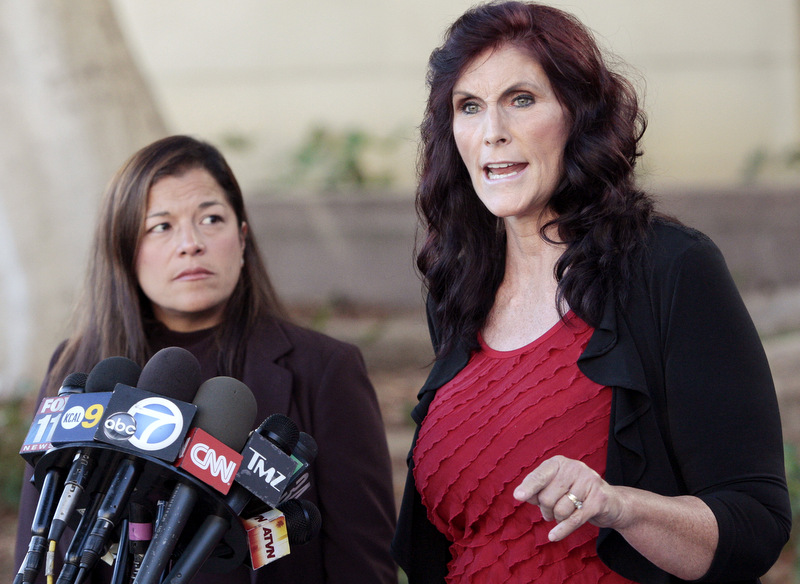
A California appeals court ruled on Feb. 19, that Google must remove all copies of the controversial anti-Islam movie “Innocence of Muslims” from all of its online platforms, it was revealed on Wednesday.
Though the decision was made last week, the court issued a gag order regarding its decision, “to prevent a rush to copy and proliferate the film before Google can comply with the order.”
“Google, Inc. shall take down all copies of ‘Innocence of Muslims’ from YouTube.com and from any other platforms under Google’s control, and take all reasonable steps to prevent further uploads of ‘Innocence of Muslims’ to those platforms,” the Ninth Circuit panel decided in a 2-1 vote.
The ruling comes after actress Cindy Lee Garcia and her lawyers continued to pursue a legal battle the actress began in 2012, when she filed a copyright claim months after the video was released. Garcia allegedly filed the copyright claim after the film garnered worldwide attention for being insensitive to the Islamic faith, resulting in Garcia and her costars receiving death threats.
Garcia argued that she wanted the video to be removed because she had agreed to act in one film, and her performance had been “overdubbed and popped into another.”
“This needs to come off [YouTube], because it’s going to continue to cause more problems,” Garcia said in 2012. “I want it off because it’s degrading, demoralizing and it affected our country, our ambassador [in Libya] and our Navy SEALS.
“Yes we have a right to freedom of speech, but what [Youssef] did was wrong,” she said.
The actress filed a copyright claim against the filmmakers, suing the producer and YouTube in the state of California. She was unsuccessful, so she took her case to the federal courts and claimed her copyright was violated. Chief Judge Alex Kozinski ruled in her favor.
Though few found the film to be an accurate depiction of Muslims, and the film was given as the reason for several anti-American protests held in several Middle Eastern countries in 2012, Google refused to entirely remove the film from its platforms, citing free speech.
“Our laws permit even the vilest criticisms of governments, political leaders, and religious figures as legitimate exercises in free speech,” the company said.
In response to Garcia’s concerns, Google said the actress appeared in the film for about five seconds, and that while she may have every right to file legal claims against the director, she has no right to file a copyright lawsuit against Google.
But Kozinski disagreed with Google and said that because Garcia faced “serious threats against her life,” the film should be taken down.
After news of the court’s decision became known on Wednesday, many free speech advocates took issue not only with the ruling, but also with the court’s decision to issue a gag order.
In a blog post on Thursday, Lee Rowland, a staff attorney with the American Civil Liberties Union’s Speech, Privacy and Technology Project, said the decision to censor the movie was foolish given that the film has been cited as a reason why the U.S. Consulate in Benghazi was attacked in September 2012, and has been cited in several blogs and newscasts related to religious freedom, free speech and the Benghazi incident.
“To censor this film now would be as tough and meaningless as getting a feral cat back into a bag,” Rowland wrote, adding that denying the public access to a movie that is “at the heart of a global debate about policy and politics” is a foolish decision.
“We have a term for censoring speech because others might react badly to it,” Rowland wrote, “it’s called a heckler’s veto. And it’s prohibited under our Constitution. It’s the reason we don’t prohibit controversial speakers like the KKK from marching down public streets out of concern that bystanders will react violently. Under our Constitution, we don’t allow the government to censor speech on the theory it might cause someone else to misbehave. Our Constitution—and common sense—tell us to target the threats and the violence, rather than the protected speech.”
The video has been removed from YouTube and replaced with the following message from Google: “This video is no longer available due to a copyright claim by an actress over her 5-second appearance in the video. A U.S. court has ordered Google to remove the video. We strongly disagree with this copyright ruling and will fight it.”

